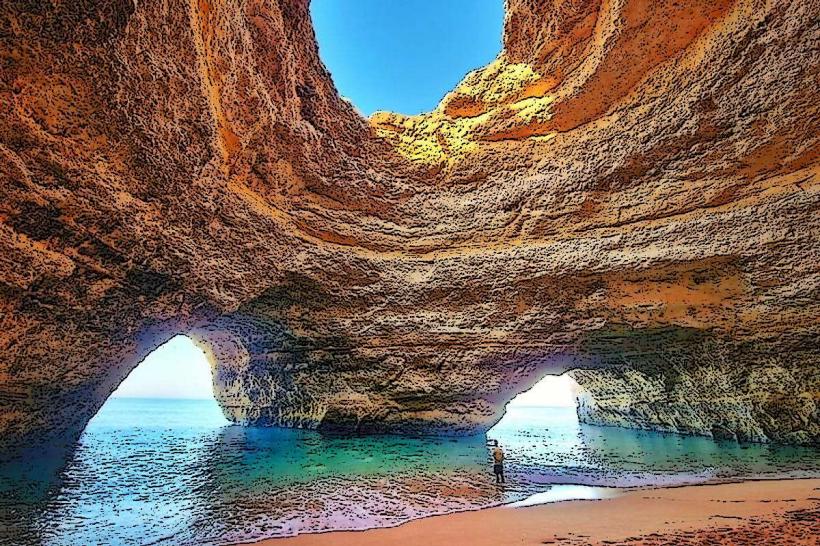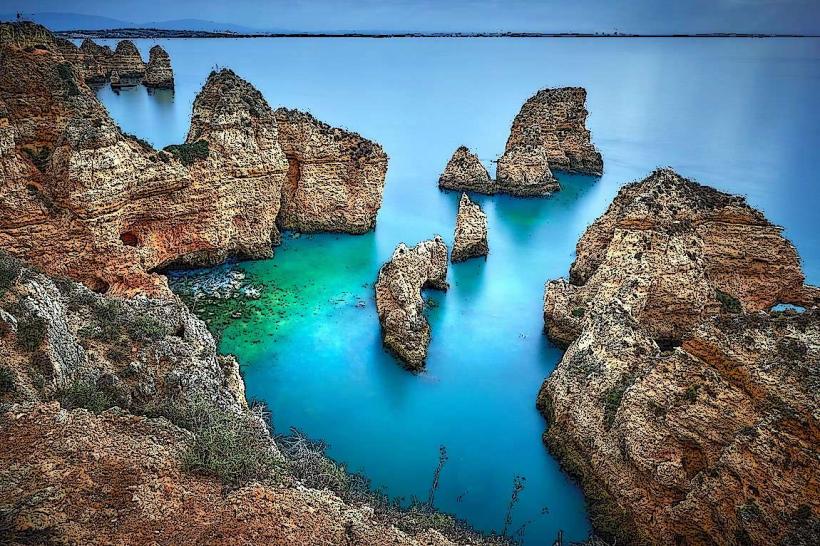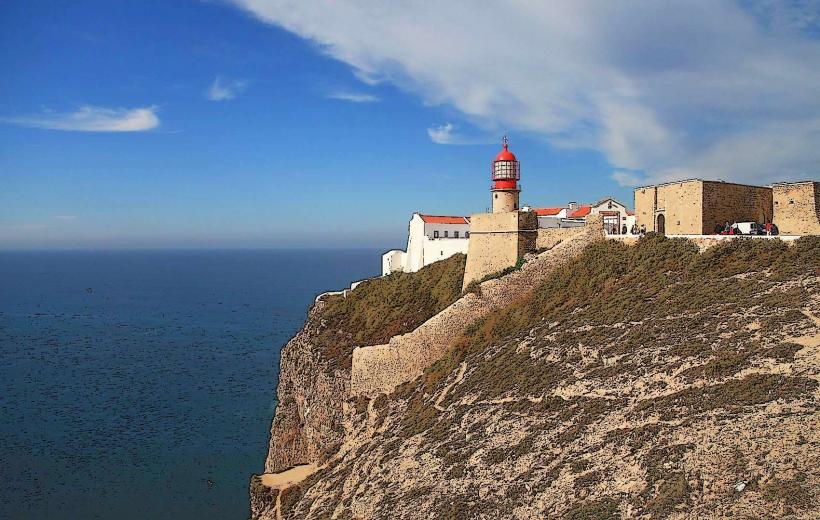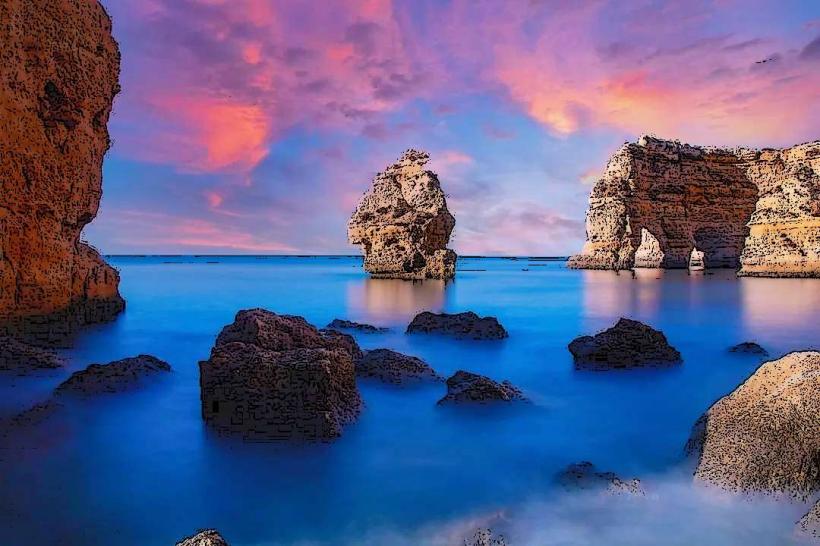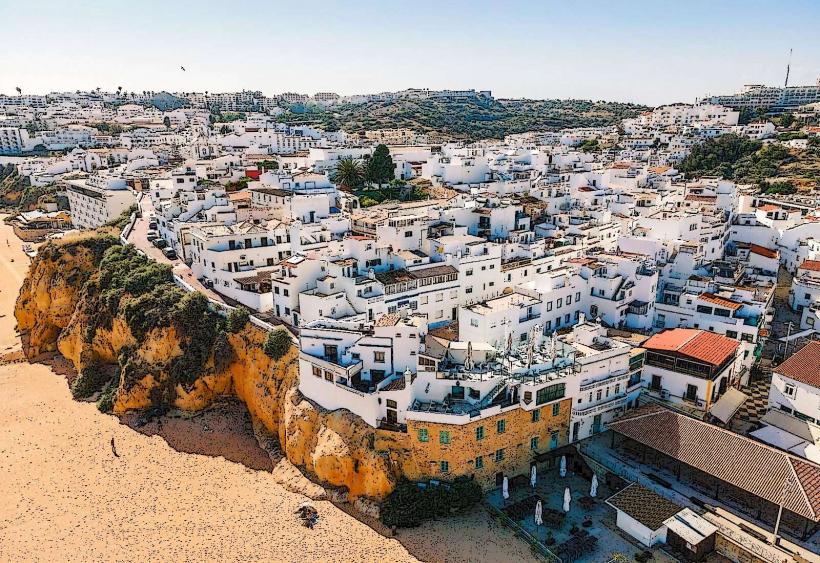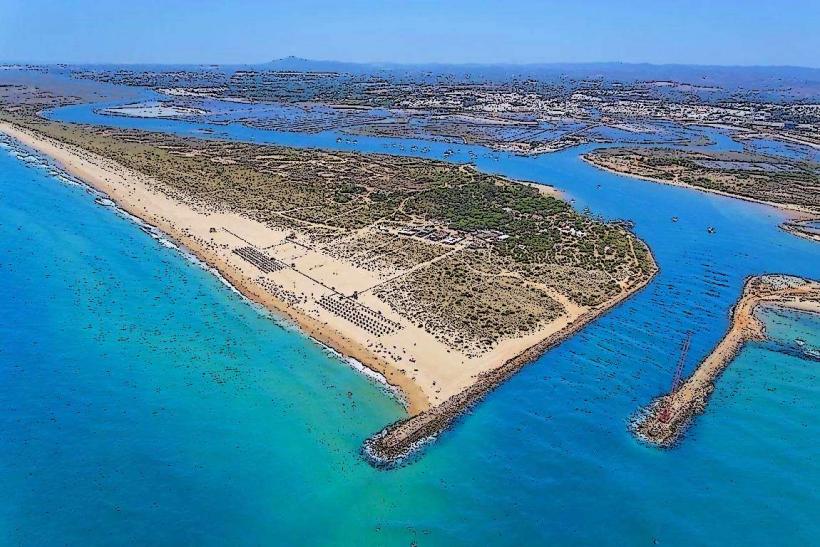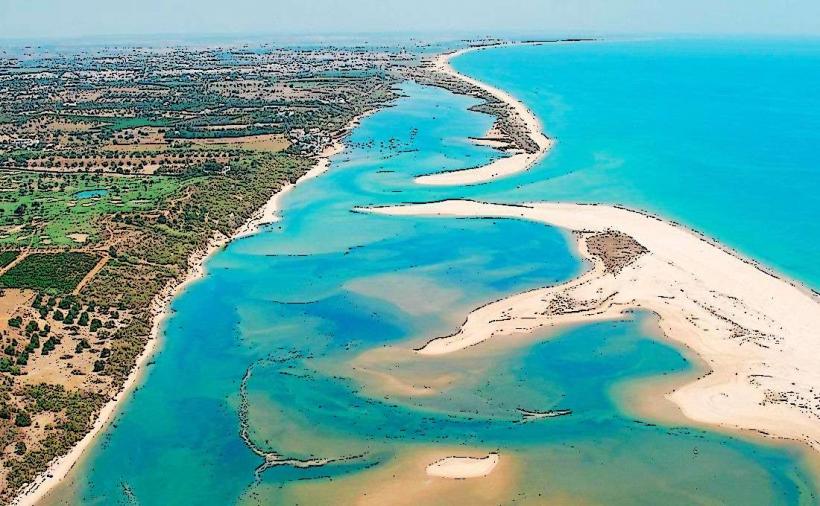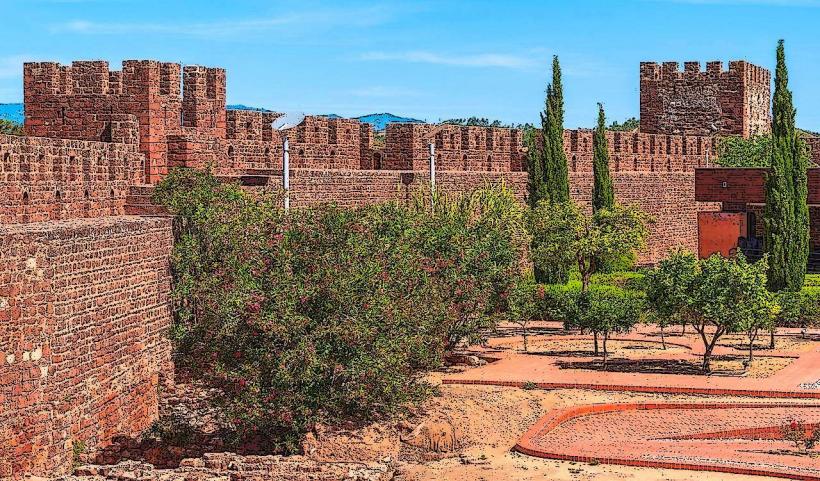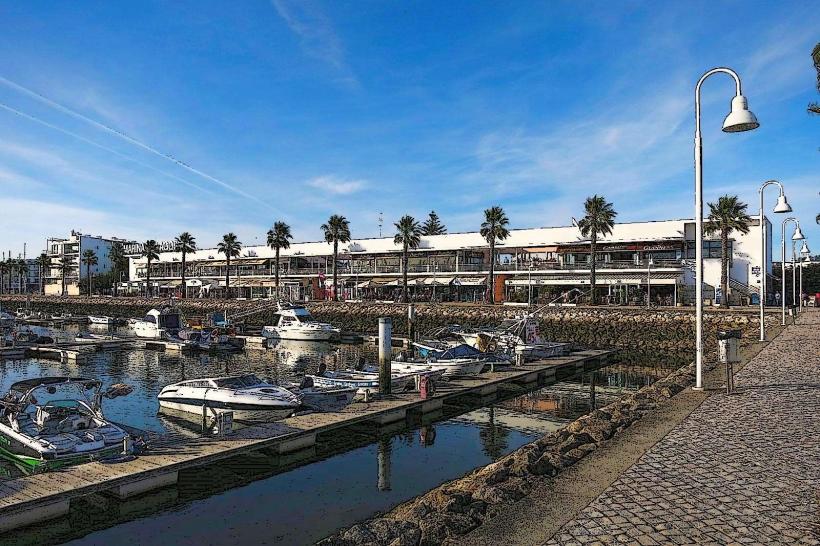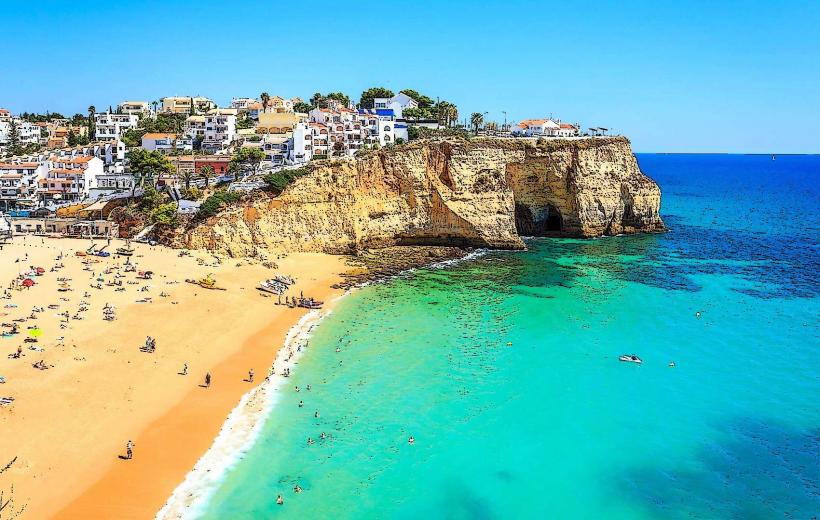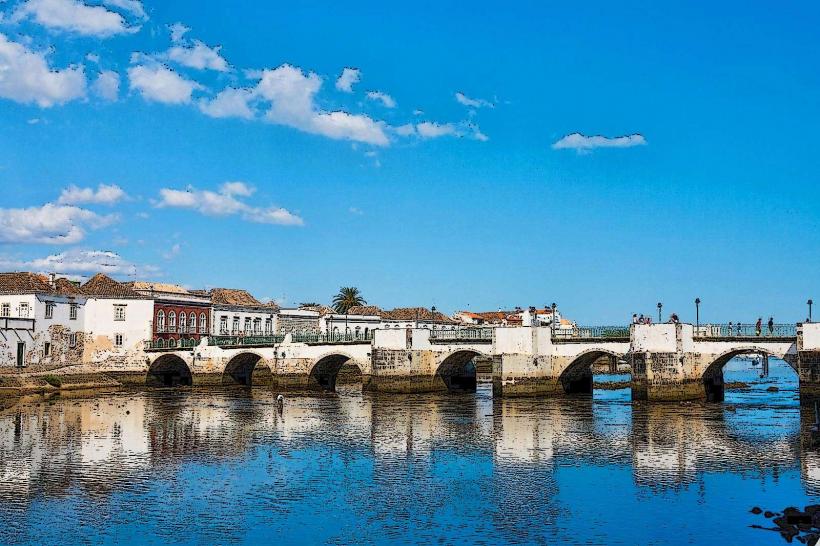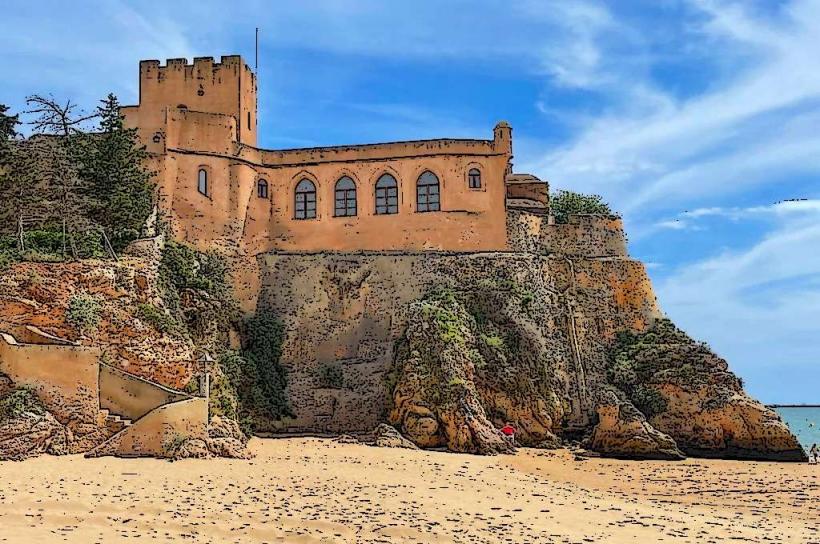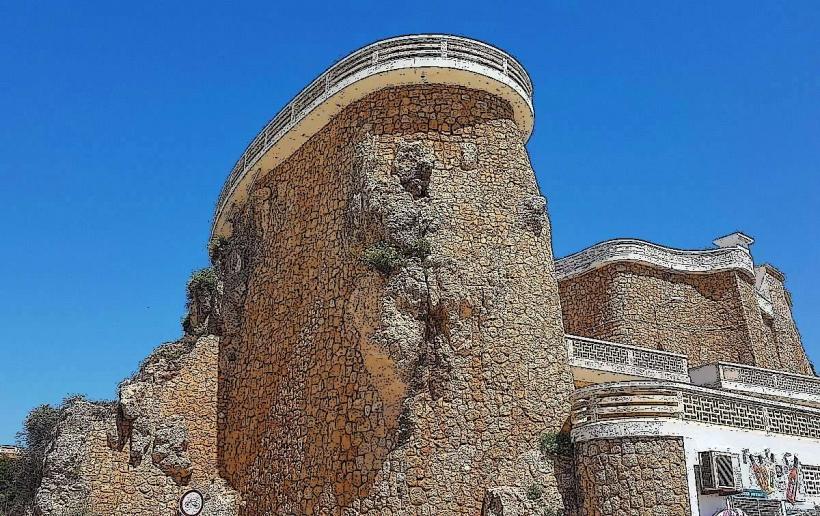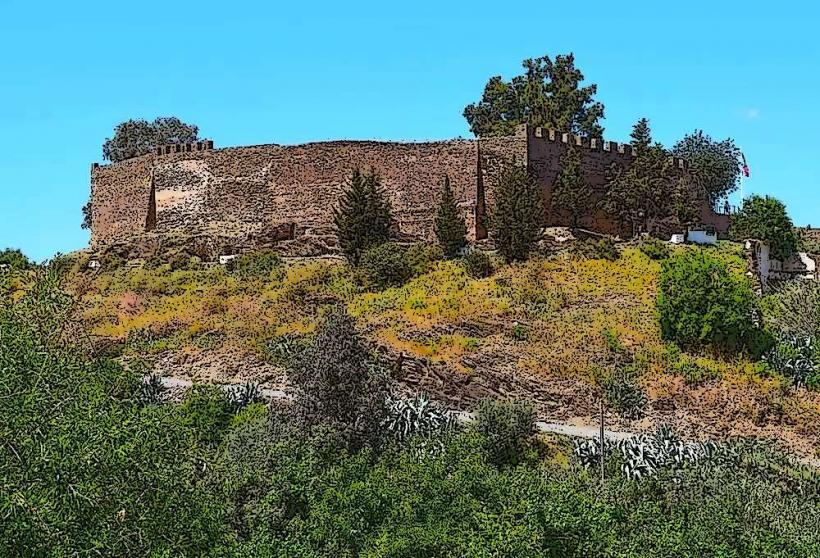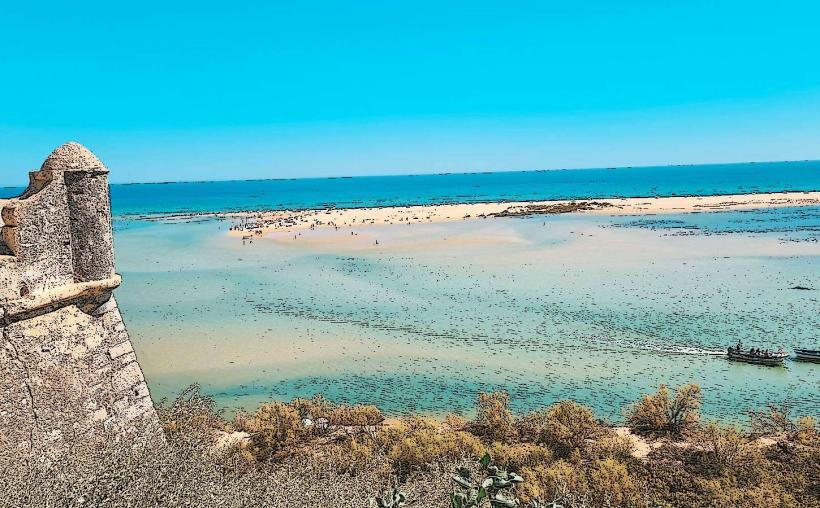Information
City: AlgarveCountry: Portugal
Continent: Europe
The Algarve is the southernmost region of Portugal, known for its stunning beaches, rugged coastline, charming towns, and mild Mediterranean climate. The Algarve is a popular destination for tourists, particularly from Europe, drawn to its natural beauty, rich cultural heritage, and variety of outdoor activities. Here’s an in-depth look at the Algarve:
1. Geography and Landscape
- Coastline: The Algarve is famous for its dramatic coastline, which stretches for about 200 kilometers (124 miles) along the southern edge of Portugal. It features stunning cliffs, sandy beaches, hidden coves, and caves. The golden beaches of the Algarve are considered some of the best in Europe, with notable spots such as Praia da Marinha, Praia de Dona Ana, and Praia do Camilo. The coastline is interspersed with rugged rock formations, grottoes, and limestone cliffs, particularly around Lagos and Albufeira.
- Hills and Mountains: The inland areas of the Algarve are characterized by rolling hills, small mountain ranges, and fertile plains. The Serrinha de Monchique is the highest point in the region, with Foia being the peak at 902 meters (2,959 feet). These areas are covered with cork oak forests, olive groves, and vineyards, offering a more peaceful and rustic side of the Algarve.
- Natural Parks: The Algarve also boasts several natural parks and protected areas, including the Ria Formosa Natural Park, a coastal lagoon system that is home to a rich variety of bird species, and the Costa Vicentina Natural Park, which is characterized by rugged cliffs and unspoiled beaches.
2. Climate
- Mediterranean Climate: The Algarve enjoys a mild Mediterranean climate, with hot, dry summers and mild, rainy winters. Temperatures in summer can reach up to 30°C (86°F) or higher, particularly in coastal towns like Albufeira and Faro, while winter temperatures generally range between 10°C (50°F) and 15°C (59°F). The Algarve is one of the sunniest regions in Europe, with over 300 days of sunshine per year.
- Microclimates: Due to its varied terrain, the Algarve experiences microclimates. The coastal areas tend to be warmer and sunnier, while the inland hills can be cooler in the winter and more temperate in the summer.
3. Culture and Heritage
- Historical Influence: The Algarve has a rich history, influenced by various civilizations, including the Romans, Moors, and Portuguese. The Moors left a lasting imprint on the region, particularly in the architecture and culture of towns such as Silves and Albufeira. Moorish fortresses, narrow cobbled streets, and traditional tilework can still be found across the region.
- Architecture and Towns: The Algarve is dotted with charming towns and villages, many of which feature whitewashed buildings with colorful accents, typical of Portuguese coastal architecture. The historic towns of Faro, Lagos, and Tavira boast significant historical sites, including fortresses, churches, and museums. The town of Silves is home to a well-preserved Moorish castle, while Tavira has a distinct blend of Roman and Moorish influences.
- Festa and Traditions: Traditional festivals are an important part of Algarvean life, with events such as the Festa de Nossa Senhora da Rocha in Albufeira, Festa de São João in Portimão, and the Festa de Nossa Senhora da Piedade in Alcoutim. These festivals celebrate the region’s religious and cultural heritage with processions, music, dancing, and fireworks.
4. Cuisine
- Seafood: The Algarve is renowned for its seafood, particularly fresh fish and shellfish. Dishes such as grilled sardines, octopus salad, and seafood rice are common in Algarvean cuisine. Cataplana de Marisco, a seafood stew cooked in a traditional copper pot, is a regional specialty.
- Cured Meats and Cheese: In addition to seafood, the Algarve produces a variety of cured meats, including presunto (cured ham) and linguiça (sausage). The region is also known for its cheese, particularly the Queijo de ovelha (sheep's cheese) made from local sheep's milk.
- Algarve Wine: The Algarve is an emerging wine region, with vineyards producing a range of wines. Borges and Quinta dos Vales are some of the well-known wineries, producing both red and white wines. The Algarve’s wine region is gaining recognition for its indigenous grape varieties, including Arinto, Alvarinho, and Tinta Negra.
- Almonds and Fig Cakes: Almonds are a key ingredient in Algarvean desserts. Dom Rodrigo, a traditional dessert made of egg yolks, sugar, and almonds, is a popular sweet. Figs are also widely used, and fig cakes are a local delicacy.
5. Economy
- Tourism: Tourism is the Algarve's primary economic driver, with millions of visitors flocking to the region each year. Tourists are drawn to the Algarve for its beautiful beaches, golf courses, outdoor activities, and cultural experiences. The Algarve also attracts long-term residents, particularly from Northern Europe, who choose to retire or invest in property in the region.
- Agriculture: In addition to tourism, the Algarve has a strong agricultural sector. The region produces a variety of crops, including citrus fruits (oranges and lemons), olives, almonds, and grapes for wine production. The Algarve’s mild climate and fertile soils make it ideal for agriculture.
- Fishing and Seafood Industry: The Algarve has a long history of fishing, and its coastal communities are known for their fishing traditions. The fishing industry remains important, with a focus on sustainable fishing practices. The region is one of the key exporters of seafood in Portugal.
6. Transportation
- Faro Airport: The Algarve is easily accessible by air through Faro International Airport, which serves as the region’s main airport. It has regular flights to and from major European cities, especially in the summer months when tourism peaks.
- Roads and Highways: The Algarve has a well-developed road network, with major highways such as the A22 linking towns and cities along the coast. Renting a car is a popular option for visitors, allowing easy access to the region's beaches, historic towns, and natural parks.
- Train and Bus: The Algarve is served by a railway line running along the coast, connecting cities such as Faro, Portimão, and Lagos. There are also regional buses that provide convenient access to smaller towns and villages.
7. Tourist Activities
- Beaches and Water Sports: The Algarve is known for its golden sandy beaches, ideal for sunbathing, swimming, and watersports. Popular beaches include Praia da Rocha, Praia de Dona Ana, and Praia de Alvor. The region is also excellent for surfing, windsurfing, and kitesurfing, particularly around Sagres.
- Golf: The Algarve is one of Europe’s top golf destinations, with world-class golf courses such as Vale do Lobo, Quinta do Lago, and Almancil. The region’s pleasant weather makes it ideal for year-round golfing.
- Hiking and Nature: The Algarve’s diverse landscapes offer great opportunities for outdoor activities, including hiking, birdwatching, and cycling. The Costa Vicentina Natural Park is popular for its scenic walking trails, and the Ria Formosa lagoon is a haven for birdwatchers.
- Historic and Cultural Attractions: The Algarve has a wealth of cultural and historic sites. In Faro, visitors can explore the Arco da Vila and Faro Cathedral. Silves, with its imposing Moorish castle, and Lagos, known for its historical significance during the Age of Exploration, are also must-visit towns.
8. Local Identity
- Traditional Crafts: The Algarve is known for its traditional crafts, including pottery, woven textiles, and embroidery. The region’s markets, such as the Mercado Municipal in Faro and Lagos, are excellent places to purchase handmade goods and souvenirs.
- Folk Music and Dance: Traditional folk music and dance, such as Fado and Cante Alentejano, are part of the Algarve’s cultural heritage. Festivals and cultural events often feature local performances and celebrate regional traditions.
9. Conservation and Sustainability
- Environmental Protection: The Algarve is dedicated to preserving its natural landscapes and biodiversity. Many areas, including the Costa Vicentina Natural Park and the Ria Formosa Natural Park, are protected to safeguard local wildlife and habitats. The region also promotes sustainable tourism practices to minimize the environmental impact of its booming tourist industry.
- Marine Conservation: Efforts are underway to protect the Algarve’s marine life, with initiatives focused on preserving the region’s underwater ecosystems, including the marine reserves off the coast.
Summary
The Algarve is a diverse region that offers a blend of beautiful beaches, rich cultural heritage, and outdoor adventure. Whether you’re enjoying the coastline, hiking through its natural parks, exploring historic towns, or indulging in local cuisine, the Algarve offers something for everyone. Its welcoming climate, stunning landscapes, and vibrant culture make it one of Europe’s top travel destinations.

